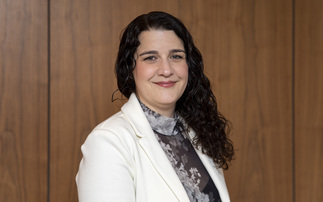Insurers talk to advisers about products, but should advisers expect more? Nick Jones thinks they should.
Continued from previous page...
Take income protection, for example. Is it really justified to develop features such as guaranteed insurability options and then add them to a plan with an “Any” or “Activities of Daily Living” occupation of incapacity? That is comparable to developing the slimmest, most minimalist LED TV in the world, only to explain that it only works on an analog signal.
But fundamental flaws in our approach such as these don’t seem to stop a constant procession of new products and product enhancements, most of which appear to be designed to either win a favourable rating or to top a comparison table.
The big question is – does this really make things better for customers and indeed advisers? What do you think? Should insurers be focusing their attention elsewhere?
With so much time spent on product development, most of which really doesn’t move the market forward, should insurers change tack? What could they focus on to really drive protection where it deserves to be, as part of our everyday psyche?
The million-dollar question
In a sense, it is the million-dollar question for our industry and there are a number of possible answers. But one theme was shared and discussed at a recent adviser roundtable event: insurers need to devote more time and effort into helping advisers develop their protection sales, specifically through enhanced training and support.
The rhetoric was simple. As more and more time is devoted to regulation, smaller margins and decreasing admin teams, advisers simply don’t have the time to be as proactive as they would like.
It is true that the changing background and experience of your typical adviser today also mean that some do not have the sales skills required to engage modern consumers in what is not, on the face of it, the sexiest purchase.
Sure, they may be top of the tree when it comes to product knowledge, but crafting a convincing argument for why a client needs income protection may not come quite as easily.
In the past, large direct sales forces were a breeding ground for many advisers. These teams not only benefitted from full and regular training and development, but also had the chance to share best practice with one another – what worked and what didn’t – rather than having to learn in front of customers.
The fact that this route to becoming an adviser no longer exists leaves a big hole for many. Where do they learn the skills they need to be a success? How do they share thoughts and ideas with their peers? Networks and national firms definitely play a role, but insurers need to step up too. We have the insight, but need to learn to share it effectively.
It is a reasonable guess that there are not too many advisers out there who would disagree that greater support from insurers would be welcome, but what should it look like? Here are a few ideas.
• Help making buying decisions emotional, not technical
It’s hard for advisers to sell a protection product before they’ve sold the concept, but too many insurers focus most or all of their marketing on why their proposition is better than the competition, USPs and star ratings. All of which frankly don’t amount to much more than a bells-and-whistles contest.
This article continues...








